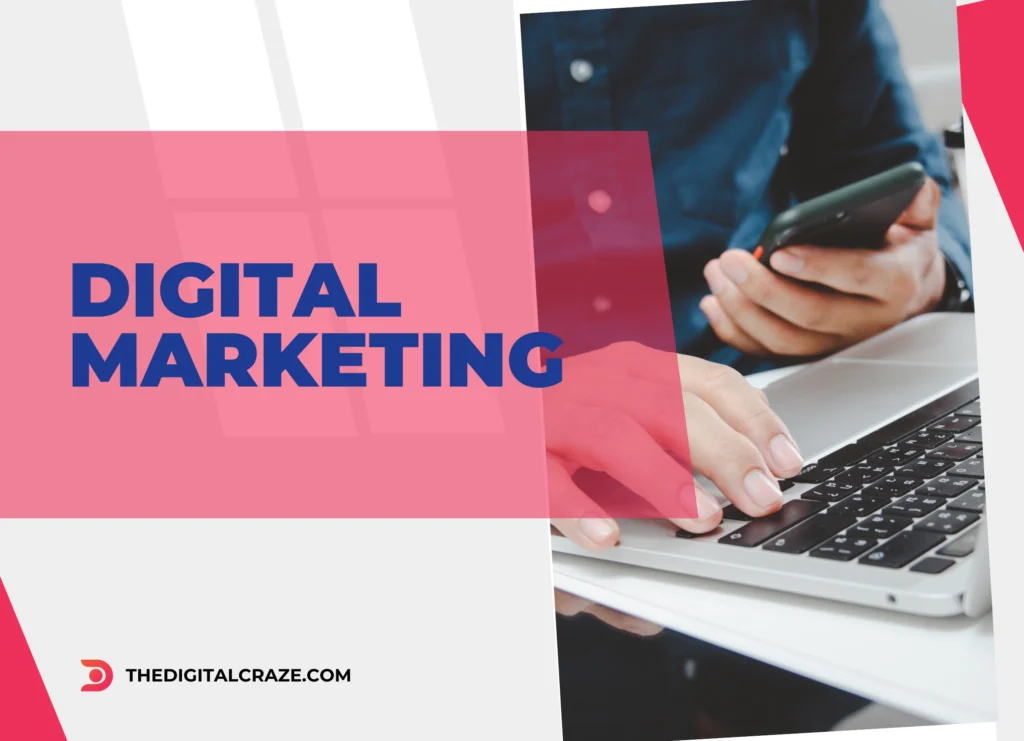
By 2024, it is estimated that the global digital advertising spending will reach over $526 billion. This staggering statistic highlights the immense significance of digital marketing and showcases the exponential growth it has achieved in recent years.
In this article, we will explore the pivotal role that digital marketing plays in shaping the industry in 2024. We will delve into its evolution, discuss strategies for success, and shed light on the continued importance of leveraging digital platforms to drive business growth and reach a wider audience.
Table of Contents
Key Takeaways:
- Digital marketing spending is projected to exceed $526 billion by 2024.
- The role of digital marketing is essential in reaching a wider audience and driving business growth.
- Understanding the evolution of digital marketing can help businesses stay ahead in a rapidly changing landscape.
- Implementing effective digital marketing strategies such as SEO, social media, and content marketing is crucial for success.
- Monitoring emerging trends and developments in digital marketing is key to staying competitive in 2024.
The Evolution of Digital Marketing
Over the years, digital marketing has undergone a remarkable evolution, changing the way businesses connect with their target audience and promote their products or services. This process has been driven by key milestones and advancements that have shaped the current landscape of the industry.
Rise of Search Engines
One of the major turning points in digital-marketing was the emergence of search engines. With the introduction of search engines like Google, businesses gained the ability to optimize their online presence and improve their visibility in search results. This development marked the beginning of the era of search engine optimization (SEO), a fundamental strategy in digital marketing.
Social Media Revolution
The rise of social media platforms such as Facebook, Twitter, and Instagram had a profound impact on the way businesses engage with their audience. Social media transformed digital marketing by providing a direct channel for brands to connect and interact with their customers. It allowed for more personalized and targeted messaging, enabling businesses to build stronger relationships and foster brand loyalty.
“Social media has revolutionized the way businesses market their products and services. It has given brands the power to communicate directly with their customers, listen to their feedback, and create meaningful connections.” – Laura Smith, Digital Marketing Expert
Mobile Marketing Boom
The rapid growth of mobile devices, such as smartphones and tablets, presented a new opportunity for digital marketing. With the increasing usage of mobile devices, businesses had to adapt their strategies to cater to the growing mobile audience. Mobile marketing tactics, including responsive web design and mobile advertising, became essential for reaching customers on-the-go and enhancing the overall user experience.
Data-Driven Marketing
The availability of vast amounts of data has revolutionized digital marketing strategies. With tools and technologies for data analytics, businesses can now gather valuable insights into consumer behavior, preferences, and trends. This data-driven approach allows companies to create more targeted and personalized campaigns, maximizing the effectiveness of their digital marketing efforts.
The Future of Digital Marketing
As digital marketing continues to evolve, new technologies such as artificial intelligence, virtual reality, and chatbots are poised to shape the future of the industry. These innovations will enable businesses to further enhance their marketing strategies and deliver personalized experiences to their target audience.
From the rise of search engines and social media to the boom of mobile marketing and the era of data-driven strategies, the evolution of digital marketing has been driven by innovation and advancements. It has transformed the way businesses operate, providing new opportunities to reach and engage with customers in a digital-first world.
Strategies for Success in Digital Marketing
In the fast-paced world of digital marketing, having effective strategies is crucial to achieving success and staying ahead of the competition. By implementing the right tactics, businesses can maximize their online presence, engage with their target audience, and drive conversions. In this section, we will discuss some key strategies that can help businesses thrive in the realm of digital marketing.
Search Engine Optimization (SEO)
One of the most important strategies for digital marketing success is search engine optimization (SEO). SEO involves optimizing your website and content to improve its visibility and rankings on search engine results pages (SERPs). By targeting relevant keywords and improving your website’s structure and performance, you can attract organic traffic and increase your chances of ranking higher on search engines like Google.
Social Media Marketing
Social media platforms have become powerful tools for businesses to reach and engage with their target audience. Developing a strong social media marketing strategy involves creating compelling content, building a loyal following, and leveraging the unique features of each platform. By consistently posting valuable content, actively engaging with followers, and utilizing paid advertising options, businesses can effectively promote their products or services and drive traffic to their website.
Content Marketing
Content marketing plays a vital role in digital marketing success. By creating and sharing valuable, informative, and engaging content, businesses can establish themselves as industry leaders and build trust with their audience. Content marketing includes various formats such as blog posts, videos, infographics, and podcasts. It is essential to develop a content strategy that aligns with your target audience’s interests and needs, as well as optimize the content for search engines.
Email Marketing
Email marketing remains a highly effective strategy for nurturing leads and driving conversions. By building a targeted email list and sending personalized, relevant content to subscribers, businesses can nurture relationships with their audience and encourage repeat purchases. Email marketing automation tools can streamline the process, allowing businesses to send automated emails based on triggers and user behavior, thereby maximizing their marketing efforts.
Influencer Marketing
Influencer marketing has become increasingly popular in digital marketing. Collaborating with influencers who have extensive reach and influence within your target market can help businesses increase brand awareness, reach new audiences, and drive conversions. It is essential to identify influencers whose values align with your brand and to establish authentic partnerships that resonate with their followers.
These are just a few strategies that can contribute to digital marketing success. It is crucial to continually adapt and evolve your strategies based on industry trends, consumer behavior, and emerging technologies. By staying up-to-date and experimenting with different tactics, businesses can pave their path to success in the dynamic world of digital marketing.
| Strategy | Key Benefits |
|---|---|
| Search Engine Optimization (SEO) | – Increased organic traffic – Higher search engine rankings – Improved website visibility |
| Social Media Marketing | – Expanded reach and brand awareness – Engaged and loyal audience – Increased website traffic |
| Content Marketing | – Positioning as an industry leader – Building trust and credibility – Improved search engine rankings |
| Email Marketing | – Nurturing leads and driving conversions – Personalized communication – Repeat purchases and customer loyalty |
| Influencer Marketing | – Increased brand visibility – Reaching new and relevant audiences – Authentic and trusted endorsements |
Conclusion
In summary, digital marketing is essential for driving business success in 2024. As the business landscape evolves, companies rely on digital strategies to connect with their audience and stay competitive. A strong online presence is crucial for businesses of all sizes, enabling them to reach a wider audience and increase brand awareness. Looking ahead, digital marketing will continue to shape the business world, requiring businesses to adapt and innovate to stay relevant. Despite changes, digital marketing remains a powerful tool for driving business growth and success.



